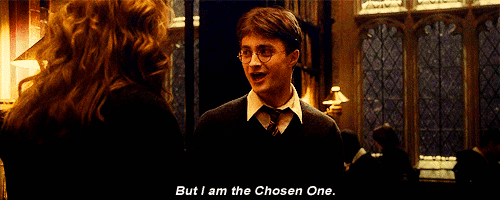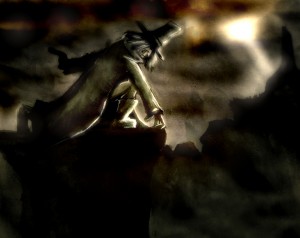Last time I explored my approach to the beginnings of a story, emphasising that I wasn’t trying to be didactic about it but simply establishing the way my mind works. In today’s instalment, I will cover my (very simple) philosophy on writing.
Ignore the snobs
I have no hard and fast rules to writing, no real do’s or don’ts to convey. In fact, whenever I hear some self-proclaimed writing expert say what you should always do or never do, I tend to automatically tune them out. I just have a very low tolerance for smugness and arrogance and that’s what these usually sound like. That’s why I really enjoyed Write About Dragons, a course in writing fantasy by one of the best writers in the genre, Brandon Sanderson. As you can see when you click the link, you can find all of it on Youtube. Brandon doesn’t spout off pretentiously about anything and he doesn’t look down on anyone. Instead, he gives sound advice that comes from years of experience and proven success.
I followed a course in writing screenplays once. What I remember most from that class is the professor emphasising how hard it is to write a good screenplay, how everyone who thinks they can do it actually sucks, and how you better listen to what he had to say if you ever wanted to have the tiniest chance of actually finishing anything halfway decent in your lifetime. Guess how many great screenplays that professor had written in his lifetime? That’s right, zero. On a tangent, I have very little respect for what the academic world has to say about almost anything, including creative endeavours.

Nobody will ever do anything if you instil a “can’t do” attitude in them. I also don’t like it when people throw around phrases like “bad writing” and “atrocious dialogue” without backing up what they actually mean by that. The very term “writing” has become loaded with pretentiousness. As a result of that, beginning writers feel very insecure and unworthy. And that’s too bad because I think writing fantasy and science fiction stories should be fun to do. I know that fun is an F-word to some people because it seems to take away from the artistic value of the work. I don’t think it does. If anything, it adds value.
I’ve been reading a lot of “nobody said being a writer was going to be fun” and similar sentiments recently. No, I think writing should be fun, especially at first. When you’re just starting out, you want to feel that kick of creating your own worlds and characters. That’s a wonderful experience. Maybe your writings won’t be particularly good at first, but that’s okay. The important thing is that you’re using your imagination, honing your skills and actually doing something rather than just talking about it.
Discipline
Now, don’t get me wrong. I know this excitement fades and after a while, it becomes all about working. And that’s fine, because by that time, you will have developed skill as a writer and you can start being serious about it. But even then, if you can keep the experience pleasant for yourself, I think the writing will only be better for that. For me, the biggest skill I still haven’t developed is discipline. But still, despite my lack of discipline and concentration, I have managed to plod on and release The Will of the Woods and Witch Hunter. Before those two (which you can now find online), there were a whole bunch of other stories that I wrote, most of which reached an audience of about ten people – but that doesn’t matter. What matters is I made them and I loved making them.
Even though I said I have no hard and fast rules, I do have one message to convey, and it’s so basic I shouldn’t have to point it out, really. Children know this so well, but adults seem to forget it: write what you feel like without any pretension. Don’t be worried about being too cliché or having two-dimensional villains or anything like that.
When people analyse big-budget movies to complain about their lack of character development, there is some merit to that, because these movies are made by professionals who should be able to craft a good story. But there is never a reason to nit-pick a young amateur’s first attempts at sculpting a story.
That being said, every writer has points that need improvement, and every genre has its typical pitfalls. When it comes to fantasy, many beginning writers have a hard time conveying the needed information that is part of their unique world-building without dumping massive amounts of history and lore on the audience. Another problem with fantasy is that it can be hard to avoid certain clichés, like the prophecy of the chosen one and a dark lord for an antagonist.
To overcome these challenges, the best idea is to simply sit down and write. Make mistakes, fall into traps, use clichés, just write. In time, you’ll find your own way of dealing with them, but you simply can’t learn just by listening to people’s opinions.

Infodumps and clichés
Nevertheless, I’ll explain how I deal with these typical fantasy challenges.
I used to be really bad with infodumps. Maybe some readers remember the final two episodes of The Witch Hunter Chronicles before I completely rewrote the story. That old version really suffered from infodump syndrome. Near the climax of the story, the heroes discovered who the main antagonist of the story really was. Said bad guy then launched into an epic monologue, explaining every minute detail of his plan and his motivation. This is not only a cliché, it’s also plainly annoying because the story stops dead in its tracks just when it was about to get exciting. In the new version, I changed lots of things, but most noticeably, I completely rewrote the ending. Intrigue, backstory and revelations are now sprinkled throughout the story in small doses, leaving the listener hungry for more information while moving along the plot. It was only through practice and self-critiquing that I finally managed to get this right, not by reading books about “how to deliver a good plot”.
When it comes to the other problem of fantasy clichés, my solution is to be aware of them, but not worry about them too much. When authors try too hard to avoid the clichés of their genre, that tends to come across as forced. Very often, the anti-cliché quickly turns into a real cliché, just like the anti-hero has now become a cliché. Most people (including myself) prefer the older clichés, because at least they have a certain charm to them. Recent clichés annoy everyone except those who haven’t picked up on them yet. One way I try to deal with prophecies, chosen ones and dark lords in fantasy is not by subverting them, but by making them less obvious or putting them less front-and-centre.
If you haven’t read or listened to Witch Hunter, the next paragraph will contain some spoilers. I don’t like spoiling anything, especially my own work, but I need to in order to explain what I mean.

I don’t think that Witch Hunter comes across as a cliché fantasy story. Nevertheless, if you look under the hood, many of the genre clichés are absolutely there. In fact, the three I have mentioned before are absolutely present: a prophecy, a chosen one and a dark lord. However, they are not the first things you think about when you think about Witch Hunter. That’s because I purposely moved those elements to the background, even though they are absolutely crucial to the mechanics of the plot. All of those classic fantasy tropes appear towards the end of the story, by which time the audience should be invested in the characters and their fate, and they won’t be thinking “oh no, this is going to be another boring story about a prophecy and a chosen one”. If I had introduced these elements from the beginning, that would have been the reaction of most seasoned fantasy fans. In addition, I made the characters and the plot structure a bit different from what usually accompanies stories about prophecies, chosen ones and dark lords. By telling the story from the viewpoint of a seasoned, older hero whose job is to protect and support the chosen one, I’ve tried to draw the attention away from the “chosen one” narrative and instead focus on other aspects of the story.
Spoilers over.
I don’t mind using those clichés. I like them. They are good, solid foundations for fantasy storytelling. They’ve just become a little stale nowadays and need to be treated with a bit more sophistication and finesse than they used to. This is in my opinion a much better way of dealing with clichés than just throwing them away and making an inherently hopeless attempt at writing fantasy in a vacuum. We are all children of Tolkien, who was himself a child of the ancient Germanic myth-makers. There is nothing wrong with that. We don’t need to disown out parents to avoid flat-out copying them.
This concludes what I have to say about writing for the moment. Next time, I’ll take on another hot topic in the audio drama community: narration, or “audiobooks versus audio drama”.
